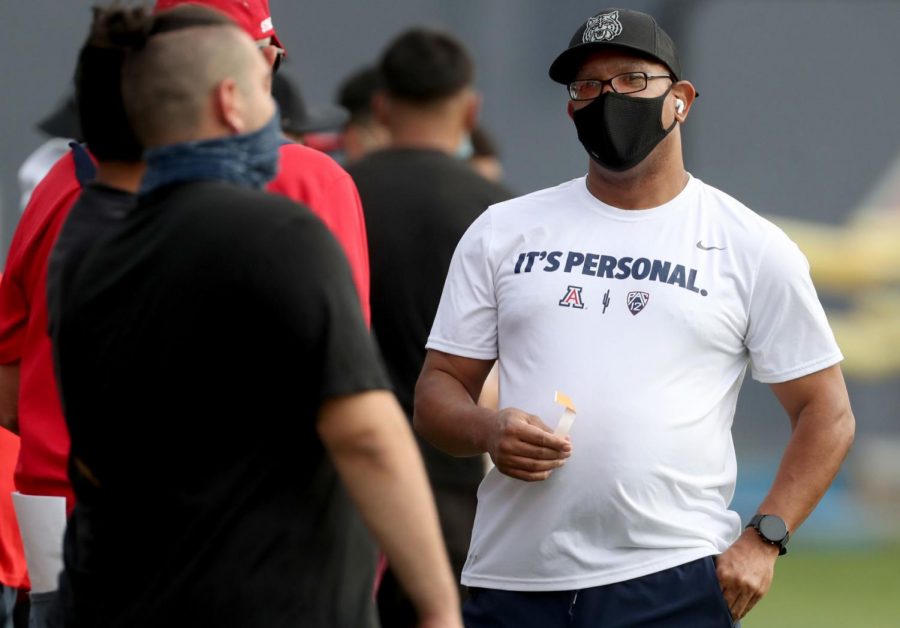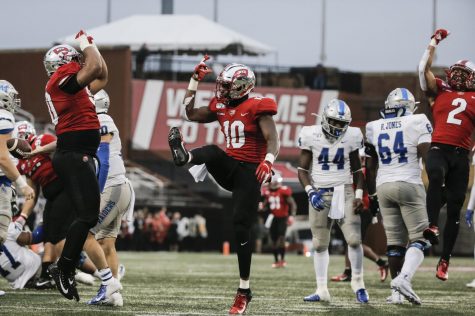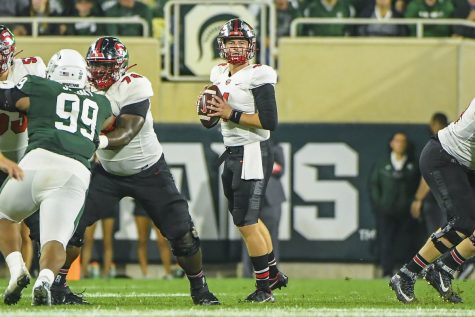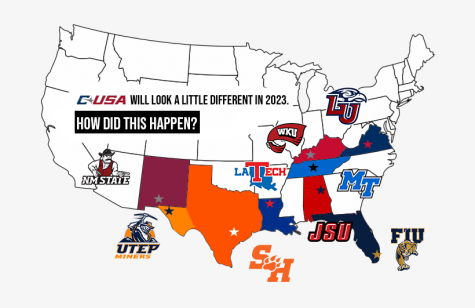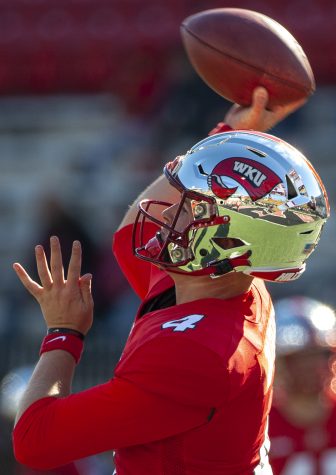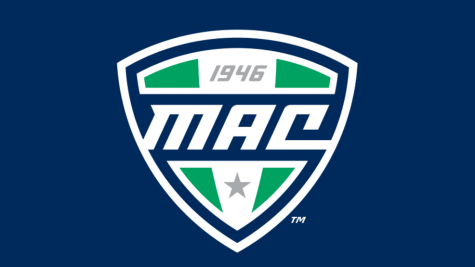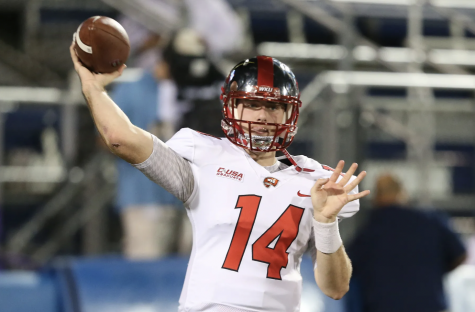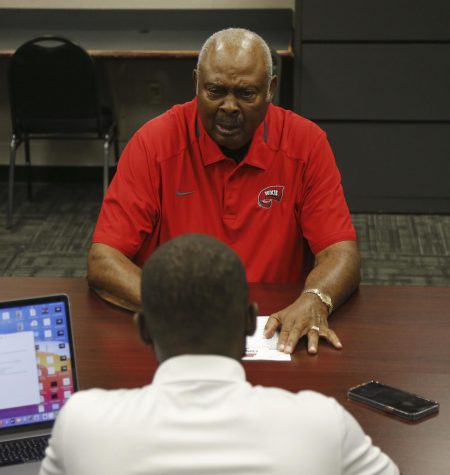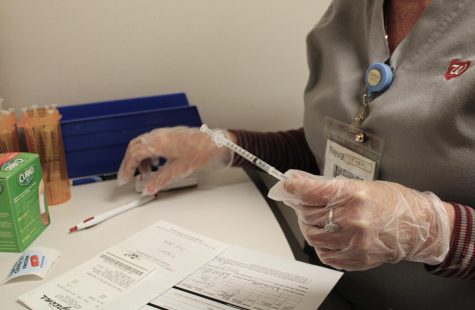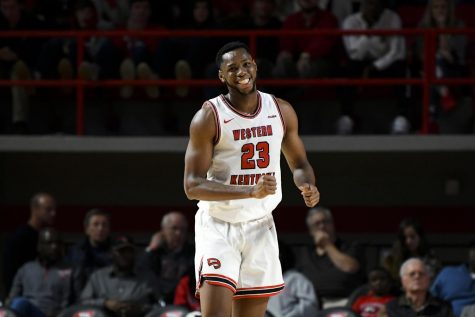Jedd Fisch has made alumni relations a priority, and ex-Wildcats appreciate the effort
April 18, 2021
The seed was planted more than 20 years ago.
Jedd Fisch had his first job in a college football program. He was working for Steve Spurrier at Florida.
Could there be a better example of the importance of alumni relations?
“He was football alumni,” said Fisch, the first-year coach of the Arizona Wildcats. “He was a Heisman Trophy winner at the school that he was coaching at.
“I try to emulate a lot of things that he did in this profession, one of which was, always, including the alumni.”
Here’s the thing about that, though: Every coach says that past players will be a big part of the program at their introductory news conference. Not all of them follow through on that promise.
Fisch has, and then some.
“He’s walking the walk,” former UA safety Brandon Sanders said.
Sanders is the embodiment of that effort. Fisch hired him to fill the newly created role of coordinator of football alumni and high school relations.
Sanders has been working behind the scenes to rebuild relationships that were broken or nonexistent. Thanks in large part to his outreach, several notable Wildcats are expected to return to campus for Saturday’s spring game. They include Lance Briggs, Trung Canidate, Antoine Cason and Vance Johnson.
The headliners are Tedy Bruschi and Rob Gronkowski. The two most visible ex-Wildcats are serving as honorary captains at Fisch’s behest. Gronkowski hasn’t been back to campus in about a decade.
“It helps to bring back the energy into our program, because those are two high-profile names,” Sanders said.
“We don’t want to take away the focus on the 2021 Arizona Wildcats, because that’s really what it’s about. But … it’s a great play.”
Having Bruschi and Gronkowski involved in the program, even symbolically, carries value. Bruschi officially became part of the staff Feb. 1, when Fisch hired him as senior advisor to the head coach. Not only was Bruschi a star player in the pros, he has worked as an NFL analyst for ESPN since he retired.
“If you don’t get excited when you hear his name,” current UA linebacker Anthony Pandy said, “do you even like playing defense?”
But the initiative Fisch is promoting, and Sanders is carrying out, goes beyond attracting star power. It’s about re-establishing connections with the hundreds of men who have donned the UA colors over the decades.
Open-door policy
Barrett Baker wants to be clear about this.
“I was never once denied attending a football practice,” said Baker, the former special-teams captain under Dick Tomey. “But it was harder to do. The door was unlocked, but you had to knock harder to get that access. Whereas now, the door is just open.”
Fisch has implemented an open-door policy for UA football alumni and fans. Every spring practice has been open to the public. It’s a departure from the previous two regimes, which generally operated under a veil of secrecy that’s commonplace in modern college football.
An alumni-outreach infrastructure always existed, but it’s different when the head coach is directly involved. Previous coaches didn’t make as much of an effort. As a result, former Cats felt alienated.
“I had zero relationship with the program, with any of the coaches, ever since I left,” former UA defensive lineman Joe Tafoya said on the “Wildcat Country” podcast in February. “It’s not because the program hadn’t tried. The A-Club and the people behind the scenes working for the program have tried. I just think there was very little effort put forth by the previous coaches to establish a relationship, to build a bridge.”
Although Fisch isn’t an ex-Wildcat — and Tafoya and many of his brethren were unsure about him at first — his willingness to build those relationships has gone a long way.
Led by Sanders and Syndric Steptoe, the UA’s senior director of player and community relations, the program has conducted monthly Zoom meetings with football alumni. Typically, 60-100 former players have participated. Sanders discusses upcoming events and ways alumni can get involved in the program.
“Then Coach Fisch will come on,” Baker said. “He gives you an update on the program, recruiting and where they’re trying to get to. And, importantly, he always opens it up for questions. He’ll answer anything that you have.”
Sanders becomes a sounding board
Sanders’ role as a liaison can’t be underestimated.
Not only is he actively reaching out to alumni to keep them informed and get them involved, he’s also readily available to answer whatever questions they might have.
“Having Brandon in that position, you have a sounding board,” Baker said. “You can have access and get the answers that you’re looking for without having to offend anybody or other ramifications.”
Sanders has been a regular presence at UA spring practices. He’ll invariably amble across the field to talk to whatever ex-players happen to be in attendance. As a product of the “Desert Swarm” era, he sees himself as the ideal bridge to the Wildcats of the distant and recent pasts.
No matter when they played, Sanders is just glad that former players now feel welcome. That hadn’t always been the case in recent years. Former UA receiver Samajie Grant, who played for Rich Rodriguez, said via Twitter that he wasn’t permitted to work out with ex-teammates at the football facility during the Kevin Sumlin era. The situation made him feel “unwanted.”
“Did I hear things? Absolutely,” Sanders said. “Did I know how bad certain things were? Not ’til I got here, truthfully. I think I might have underestimated how fractured some of the relationships were.
“The biggest thing I see is, there is an effort now. … With Syndric Steptoe and Coach Fisch, there’s a strong arm behind me to get it done.”
Not only does Fisch want former players to feel as if they’re involved, he believes current players can benefit from those connections. Most college players don’t go on to play pro football. Introducing them to their predecessors, who have become professionals in other ventures, can create networking and mentorship opportunities.
Fisch views college football as a continuum. He doesn’t talk about the program’s recent struggles. But he embraces its past successes and believes they can be achieved again. He wants Arizona’s proud football alumni to be part of the journey.
“They’re the ones that built this — the foundation of the program,” Fisch said. “They’re the ones that lived through it. They’re brothers and teammates of the guys that are here. They’re just playing in a different timeframe.”

